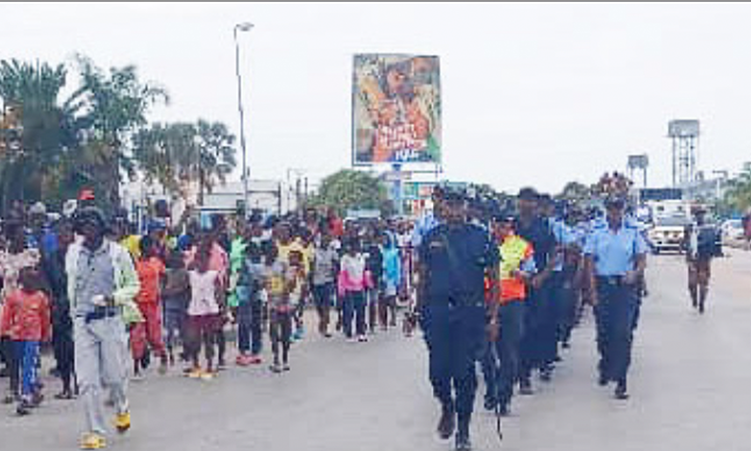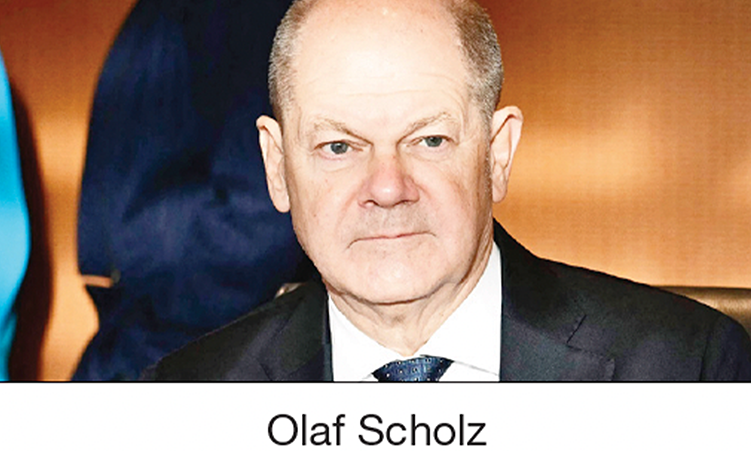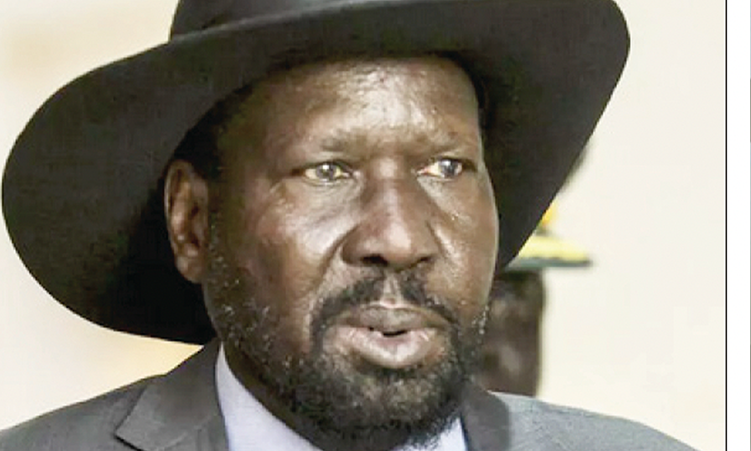At the heart of Oshikango, where Namibia meets Angola, a relentless hustle unfolds.
Here, traders navigate unemployment, currency disparities, and long journeys to sustain their livelihoods, turning cross-border business into a way of life.
Ten kilometres into the town in the Ohangwena region, Angolans dot the roadside, selling sugar cane, pots, toilet paper and vegetables to motorists along the B1 road.
This road leads straight to the Oshikango-Angola border post.
All along the roads in this area, Angolan nationals are found hustling whatever they can find in Namibia to sell back in Angola.
At the same time, crowds of Namibians are flocking into the neighbouring country.
At the border, The Namibian is directed to a makeshift unofficial crossing point 100m away from the official crossing zone.
Again, hordes of people from both countries are seen crossing, carrying bags with a variety of items from both countries.
It’s all about business.
Namibian police officers are stationed on their side of the fence, while their Angolan counterparts guard theirs.
“It’s easier to cross through here than at the official points,” one of many Namibians flocking into Angola says.
Motorbikes from Santa Clara rush to pick up passengers to take them to the bus zone destined for Ondjiva in Angola.
The bus is filled to capacity with people of both nationalities chattering away in Oshiwambo and Portuguese.
The route passes through Onamakunde and eventually arrives at Ondjiva’s massive open market, Shamkwiyu.
It is one of the busiest markets at the town.
Here, it’s every vendor for themselves, selling everything from shoes and clothing to food and other household items.
Sylvia Haihambo is from Walvis Bay and looking for branded T-shirts to buy and resell.
“I come here every second weekend to buy sport T-shirts. They are sold cheaply here, and one can sell them for more in Namibia. I have been unemployed for the past seven years.
“At least Angola has given me the opportunity to get into this hustle and earn a living,” she says.
The open market is a frenzied rush, there’s no time to play.
Angolan vendors are cashing in on the fact that most Namibian buyers are not aware of the exchange rate of the two currencies.
“One has to be careful when they come here. Make sure you change your money while at Santa Clara and be with someone who knows the currencies.
If you get to Ondjiva without changing your money, the rates are increased because of the distance,” Haihambo says.
ONE DOOR CLOSES, ANOTHER OPENS
Sylvia Fillemon (46) lives at Okongo in Namibia’s Ohangwena region.
She is not formally employed and has five children to feed.
On top of that, she provides for the rest of the household as well.
This includes her mother – a pensioner – and six other children of her siblings who have left home to seek greener pastures.
Fillemon sells second-hand clothing she buys at a warehouse at Ondjiva every month.
She sells her wares along the road at a makeshift stall at Okongo.
Fillemon says the misery of unemployment encouraged her to get involved in the cross-border business of selling second-hand clothing.
“Four years ago, I saw an increase in the number of people who would come to my town to sell second-hand clothing.
This happened especially at the end of the month and pension time.
“At the time, I was a street vendor selling mahangu pearls, onions and tomatoes.
I was not making the desired profit. I started asking around about the second-hand clothing business.
“How do I travel to Angola, how much money do I need to invest, and how will I get to understand the currency, since I don’t understand or speak Portuguese?”
Fillemon says she grew more interested in the business and started saving some of the profits she made as a street vendor to make the move.
“It has not been easy, but soon after, I connected with some of the people and we arranged to travel into Angola together.
They showed me the warehouses where I would buy my bales at Ondjiva, and I haven’t looked back since.
“I started with only one bale of second-hand clothing per month, and now I’ve increased to buying bales of other items, such as bags, blankets and shoes.
I can say the move has been postive, and although there are hurdles to get things across other borders sometimes, it’s all worth it,” she says.
The border remains a hive of activity with people carrying wares on their heads, in bags, on bicycles and even in wheelbarrows.
From Namibia, Angolan nationals head back home, rushing through the crossing points.
From the Namibian side, Namibians coming from Angola are more discreet about revealing their wares.
“I cannot reveal the things I bought. Why should I? This is my business and no one else’s until I reach my destination,” one of the traders say.
“There is no time to stand around and answer questions here, everyone has somewhere to go for the sake of business and making money. People just don’t have time to waste,” another one says.
Stay informed with The Namibian – your source for credible journalism. Get in-depth reporting and opinions for
only N$85 a month. Invest in journalism, invest in democracy –
Subscribe Now!






